The Love of Knowledge is a Kind of Madness | Out of The Silent Planet Essay 2
We’re reading C.S. Lewis’s science fiction novel, Out of The Silent Planet here on Parker’s Ponderings. I’m writing 4 philosophical/theological companion essays to help you think deeper about Lewis’s thoughts.
If you want to join us but don’t have the book, grab it from my affiliate link here:
Here’s the reading schedule and book club schedule, these are the dates when I will release my philosophical/theological companion essays to help you get the most out of the each section of the book:
September 12th - chapters 1-5 companion essay
September 19th - chapters 6-11 companion essay
September 21st @4pm central - Zoom Book Club Call #1 (for paid subscribers)
September 26th - chapters 12-17 companion essay
October 3rd - chapters 18-postscript
October 5th @4pm Central - Zoom Book Club Call #2 (for paid subscribers)
Chapters 6-11
After about a month of travel in the round spaceship powered perhaps by solar sails, we have touch down on Malacandra. Ransom finds that his prejudices were all wrong, the strange planet which was their destination is not a “rocky desolation or…a network of nightmare machines” (44) but instead was a fantastical wonder. C.S. Lewis gives us some excellent world-building details as we get to see what waves might look like on a planet with different gravity. In fact, everything on Malacandra is elongated and more spindly than Ransom is used to, including the terrifying Sorns.
I always imagine the séroni as something like the Kaminoans from Clone Wars.
Ransom’s Psychosis
Ransom’s psychosis always cracks me up, but it makes sense. Imagine being in a wholly new world as a prisoner who is meant to be sacrificed to some otherworldly creature. Brand new world and experiences and lots of your preconceived notions continually being revised. How much could you take? Ransom starts talking to himself and consoling himself, to himself, on behalf of himself:
The tendency to talk to himself was irresistible… “We’ll look after you, Ransom… we’ll stick together, old man.” It occured to him that one of those creatures with the snapping jaws might live in the stream. “You’re quite right, Ransom,” he answered mumblingly. “It’s not a safe place to spend the night. We’ll just rest a bit till you feel better, then we’ll go on again. Not now. Presently. (51)
Then he remembered with inexpressible relief that there was a man wandering in the wood—poor devil—he’d be glad to see him. He would come up to him and say, “Hullo, Ransom,”—he stopped, puzzled. No, it was only himself: it was Ransom. Or was he? Who was he? Who was the man whom he had led to a hot stream and tucked up in bed, telling him not to drink the strange water? Obviously some new-comer who didn’t know the place as well as he. But whatever Ransom had told him, he was going to drink now. (52)
I really love how C.S. Lewis write this lunacy. It’s so funny but tragic and relatable. The only thing that saves Ransom from his psychosis is the only thing that ever could—another rational being, for it is not good for man to be alone. Thankfully, Ransom discovers a hrossa, specifically, Hyoi the hrossa.
Reminder: you can support my mission to promote the life of the mind AND you can get tons of members-only content for a few dollars a month. Content like:
full-length notebook philosophy essays/tutorials where I share in-depth instructions on how to use various notebook methods and the philosophers who inspired each method
members-only access to For the Love of Wisdom entries (my digital intro to philosophy text book)
members-only access to Sayings of the Sages, my digital commonplace book of wise sayings I’ve collected over my years of studying philosophy and culture
access to our Zoom Book Club sessions where we discuss the read-along books and my companion essays
the full catalog of members-only essays + lecture videos
access to the members only chat
and lots more!
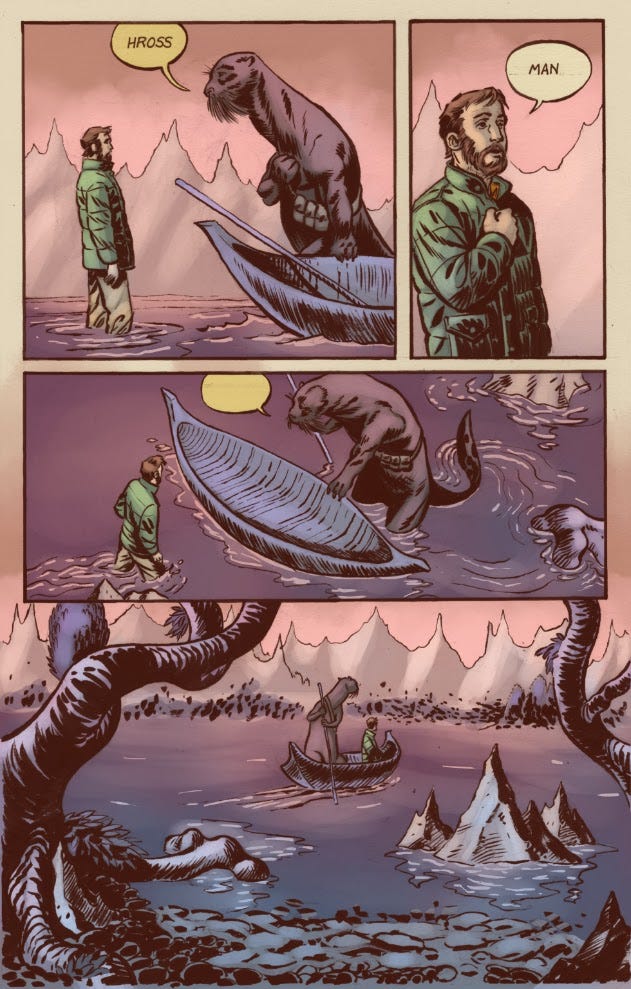
Meeting Another Rational Animal
Every science fiction story has to deal with the language gap problem: aliens don’t speak English… or they ought not. If you set your story into the future, then you can always say there is some galactic-wide common language—usually called galac, basic, standard, or something along those lines. Or you can have a machine do the translating, like Dr. Who’s police-phone-booth-disguised-space-time-machine (TARDIS) does for its passengers. Douglas Adams pokes fun at this problem in his Hitchhiker’s Guide to the Galaxy with the Babel fish which goes in your ear and translates for you from there on out.
C.S. Lewis solves the language gap problem from the start: Elwin Ransom (aka J.R.R. Tolkien) is a philologist! The solution was already baked in—he’ll translate because he’s a language expert. Upon discovering that Hyoi is rational, Ransom immediately perks up and snaps out of his psychosis in the hopes of talking with him and eventually making a Malacandrian-English dictionary. Ransom’s actual psychosis instantly transmutes into a more metaphorical psychosis, for “The love of knowledge is a kind of madness” but this sort of madness can be productive—and life saving.
Ransom begins his friendship with Hyoi—the giant otter-like being—with a mixed drink form the hrossa’s flask, like a true English gentleman. Their friendship deepens quickly and Ransom learns more and more of the language, which allows him to learn more of the planet he’s been stranded on.
One of my favorite parts of this section is Ransom’s back-and-forth reasoning about the hrossa. When he begins by thinking of them as a man like himself, he quickly finds himself horrified—it’s like a man in an otter suit, with hidden emotions behind an animal mask. But if he starts by thinking of them as an animal and then building up to their rationality from there, they are charming, like turning up the rationality on your favorite pet.
And was [the hross] really as rational as it appeared? It was only many days later that Ransom discovered how to deal with these sudden losses of confidence. They arose when the rationality of the hross tempted you to think of it as a man. Then it became abominable—a man seven feet high, with a snaky body, covered, face and all, with thick black hair, and whiskered like a cat. But starting from the other end you had an animal with everything an animal ought to have—glossy coat, liquid eye, sweet breath and whitest teeth—and added to all these, as though Paradise had never been lost and earliest dreams were true, the charm of speech and reason. Nothing could be more disgusting than the one impression; nothing more delightful than the other. It all depended on the point of view. (59)
I love that! It feels so accurate. Lewis double taps on this characterization when describing the offspring of the hrossa. They’re not really ‘children’—that’s too human—they’re more like pups:
You could forget all about the rationality of hrossa in dealing with [the young of the species]. Too young to trouble him with the baffling enigma of reason in an inhuman form, they solaced his loneliness, as if he had been allowed to bring a few dogs with him from the Earth. (66)
Again, I really love this description. Lewis is thoroughly fleshing out what it would be like to run into another rational animal species from a different planet. Why think they’d be just like us? To think they are just like us but hidden behind a fur-mask is creepy. But to see them as another animal species but at the same level of rationality as us is so fascinating. Our human children act like animals sometimes. Why because they’re not fully developed—their frontal lobes aren’t even fully formed yet—and they don’t have the cognitive tools to rule over their animality like human adults do (or should be able to do). So now if they were rational otter alien children, how would they behave? They’d be something like puppies. That’s beautiful. Maybe that’s not as impactful for you as it is for me, but this gets me every time I read the book. I love the way Lewis thinks about animals—rational and otherwise.
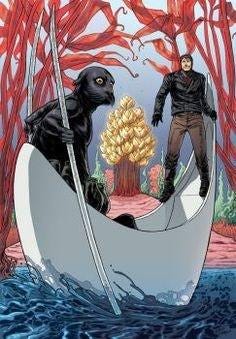
Lewis also plays up the noble savage motif but it’s unique for several reasons: 1. there’s a theological reason that we haven’t come to yet and it’s really important so I can’t spoil it, 2. it’s unique because Lewis’s noble savages are aliens and at this time in the science fiction literature, aliens are always monsters and humans are the noble ones. Lewis turned that motif on its head and made the noble savages a furry, lovely, rational race and made the English ‘gentleman’ the invaders and monsters. It’s really a wonderful twist.
Tripartite Division of Malacandrian hnau
Chapter 11 is a wild ride! It’s a massive info dump and the info is pure gold. We learn that the hrossa have a word for ‘rational animal’ it’s ‘hnau’ and it includes Ransom and the other humans. But, it turns out there are two other hnau species on Malacanda: the séroni (plural of the dreaded ‘sorn’) and the pfifltriggi. So whereas earth has one hnau, mankind, Malacandra has three.
We’ve learned that the hrossa are poets, musicians, farmers, and hunters—they hung the hnakra, which is the big snapping monster that first scared Ransom and his captors when they arrived on the planet. The séroni are the ones who know everything, they’re the ‘intelligentsia’ as Ransom sees it. They live in caves up in the lofty mountains. And the pfifltriggi are the craftsman, the artificers, working with metals, especially arbol hru or Sun’s blood—gold—the promise of which lured Devine out on this journey.
Here’s the cool part, this all corresponds to Plato’s Republic! The three hnau represent the three parts of Plato’s philosophical psychology: the rational (séroni), spirited (hrossa), and the appetitive (pfifltriggi). Plato drew a connection between the properly ordered soul and the properly ordered society. So, just as the properly ordered soul has reason at the top ruling over the spirited and appetitive parts—the charioteer (rational) holding the reigns of the white horse (spirited) and the black horse (appetitive)—so too the properly ordered city should be governed by philosopher-kings (rational) who rule over the auxiliaries/warriors (spirited) and the producers/laborers & craftsmen (appetitive).
Lewis, the Christian-Platonist, made an alien society comprised of three rational animals but he trifurcated the three aspects of Plato’s human psyche and personified them in each species. But Lewis doesn’t just take Plato’s model wholesale—he makes some changes. The hrossa try to explain the Ransom that the séroni are not the rulers of their world, as opposed to Plato’s prescription. Instead, it’s someone or something called ‘Oyarsa’ who knows all and rules above the hnau of Malacandra. It’s hard to not see this as a commentary on Plato’s project, but more on that in the coming essays.
Ransom is concerned with evangelizing the poor brutes but when he asks them if Oyarsa is God they fervently reject the notion, pointing instead to Maleldil The Young who loves with The Old One… aka God the Son and God the Father. Awesome! We’re going to see a lot more Theology very soon.
It’s after this theological lesson that we begin to see Ransom as the foolish one, instead of the noble savages. He tries to dumb down his concepts for them, telling them that he came from outer space because he didn’t think they’d understand the concept of another planet. But they corrected him, thinking him too ignorant to know that he must have come from another planet since there’s no air in space—or the heavens. The subversion is beginning. The Malacandrian hnau aren’t ‘bent’ like the bad men who kidnapped Ransom, but they are plenty wise. They’re not simple, but they do seem to be innocent and pure—which makes it hard to understand the sinful actions and desires of the bent hnau.
Lewis somehow is able to say so much in so few words. We’re only 72 pages in and we already have massive world-building, deep theological themes, platonic philosophical psychology, and profound subversions and upheavals of classic science fiction tropes. Lewis is not done yet, though. There is so much packed into the rest of the book. I’m pumped for you guys! I’m still blown away at Lewis’s appropriation of Plato like that. It’s another motif that gets me every time.
Alright, so that’s it for now. Onward!
If you are enjoying this read along, consider upgrading to a paid subscription and help support this kind of work.
and/or consider buying me a coffee



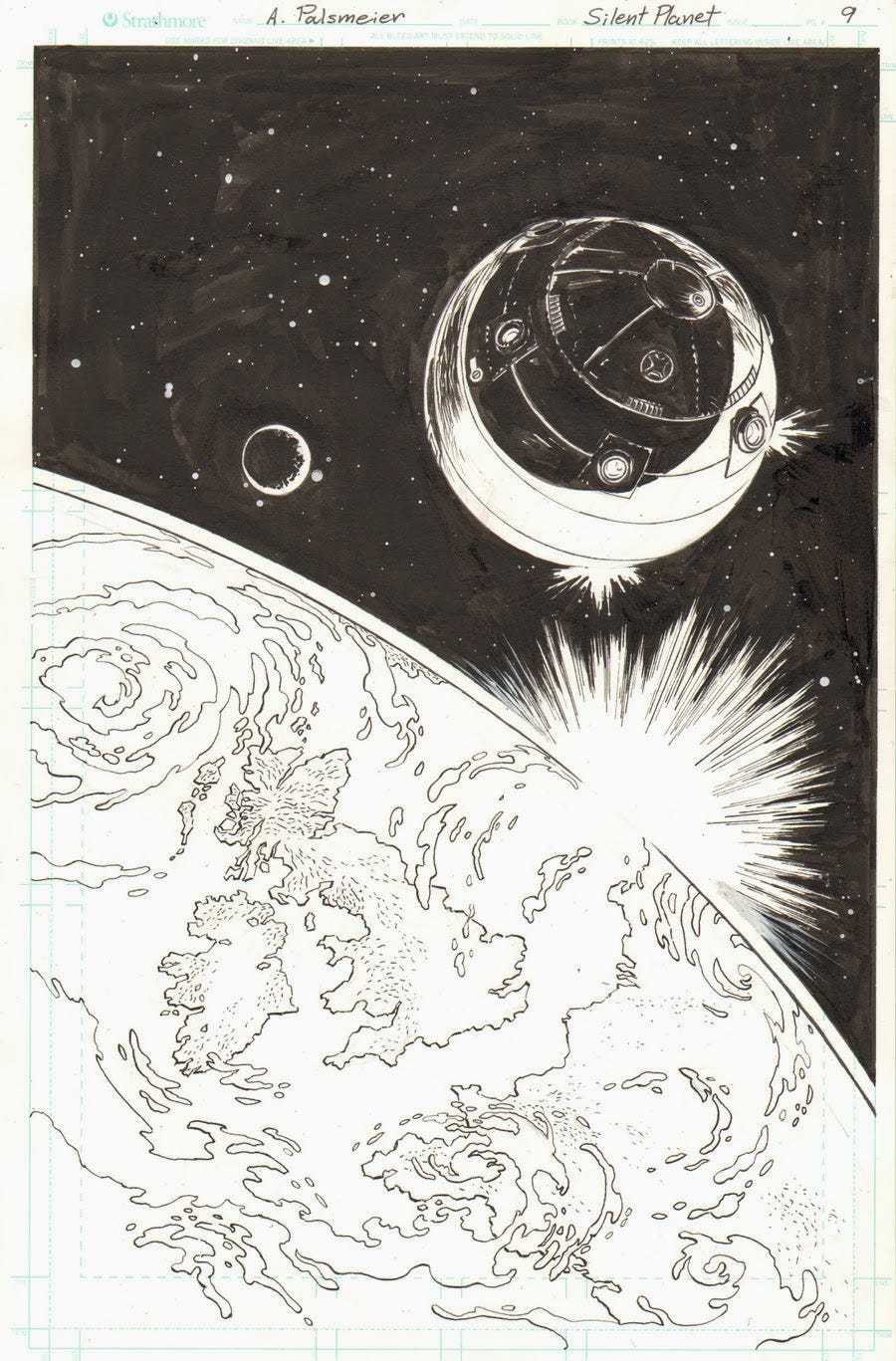
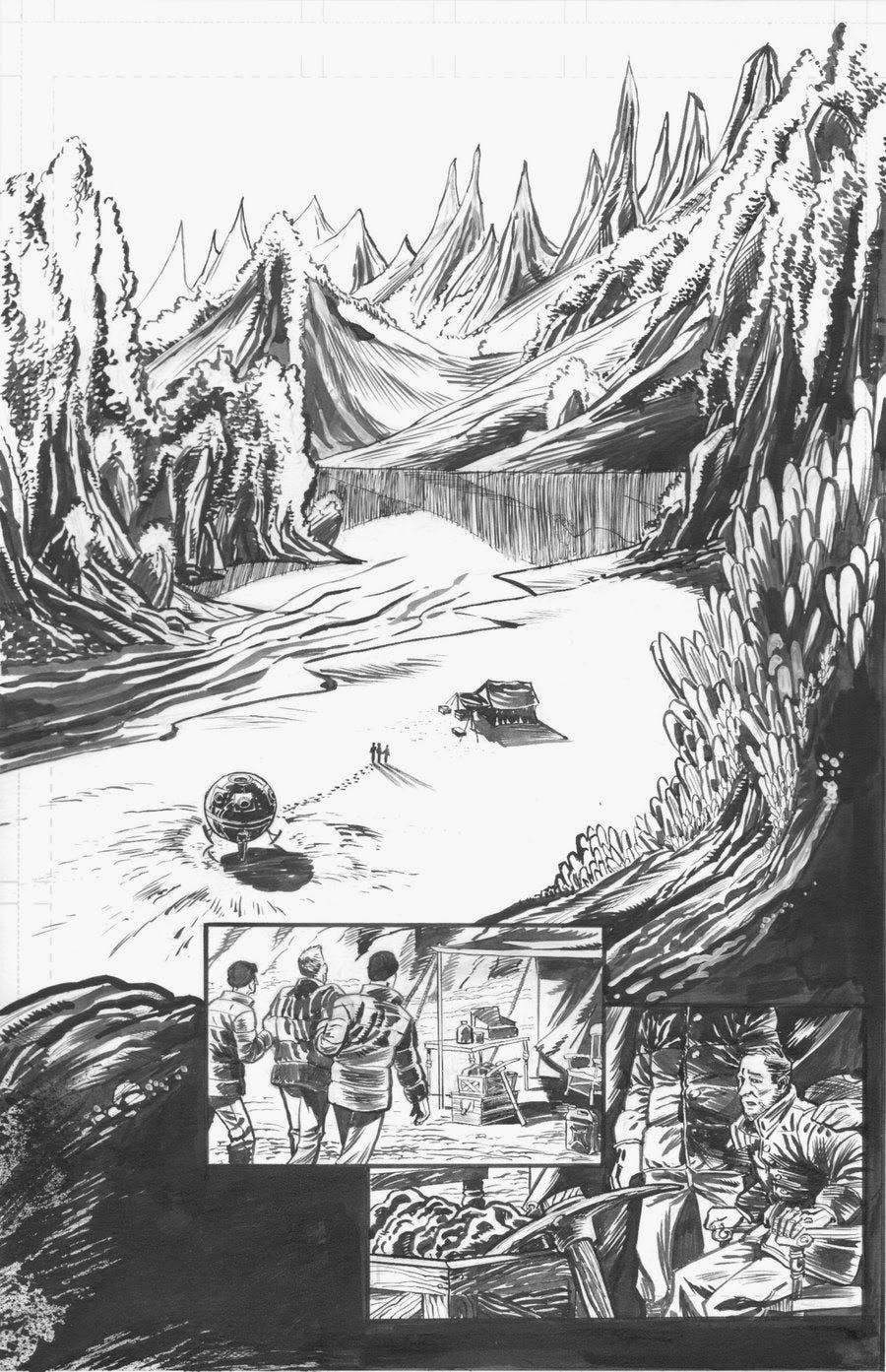
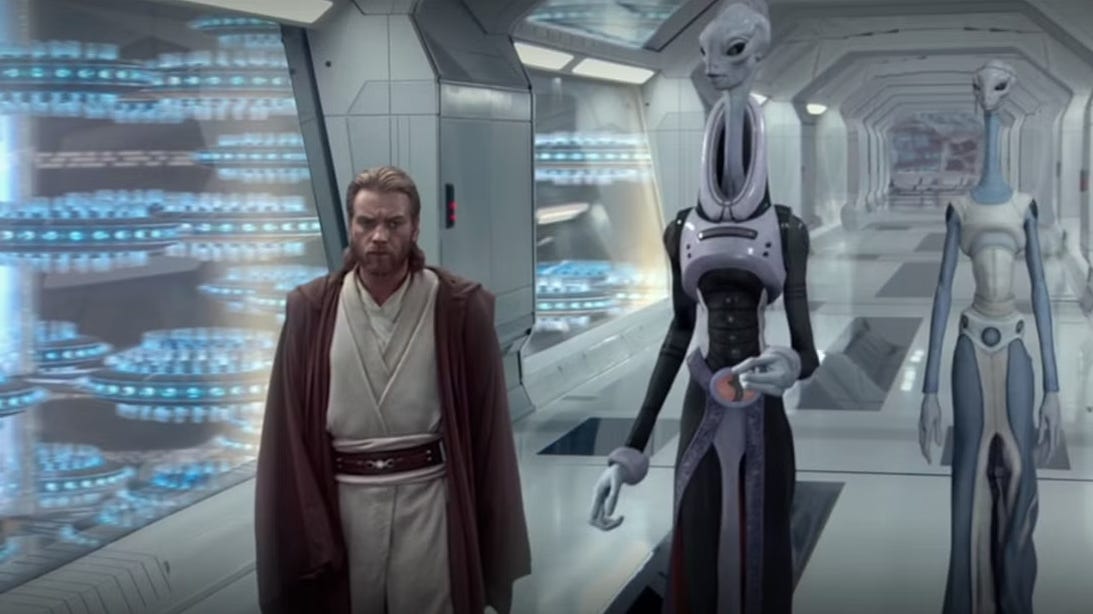
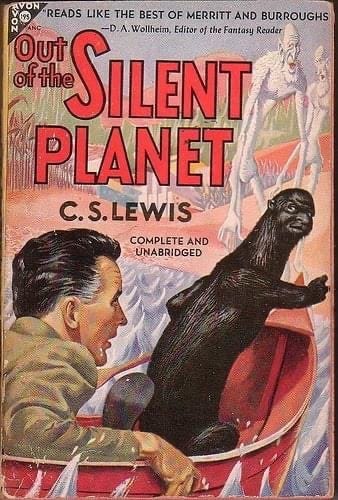
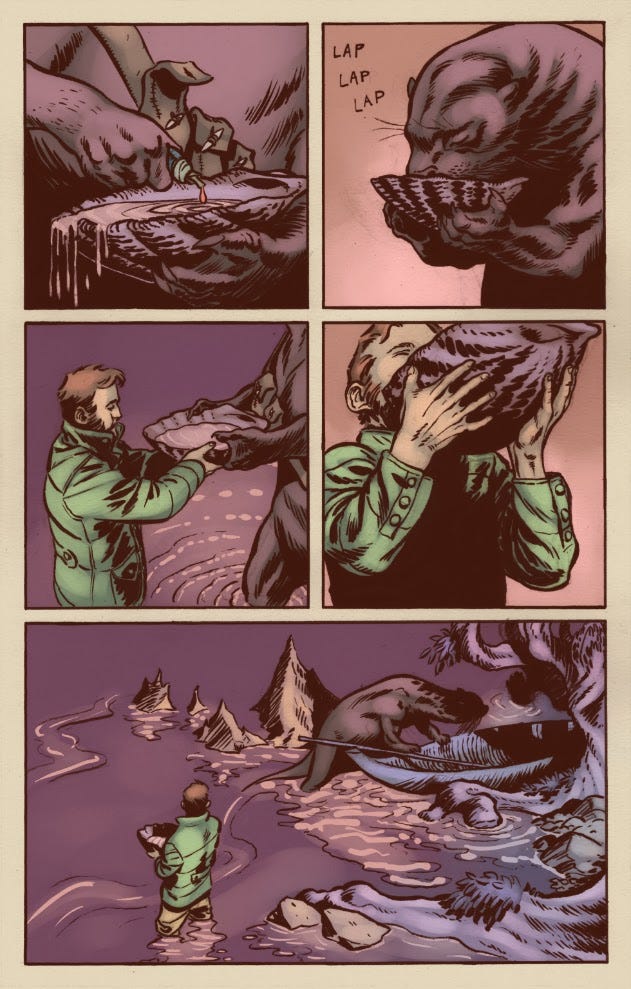
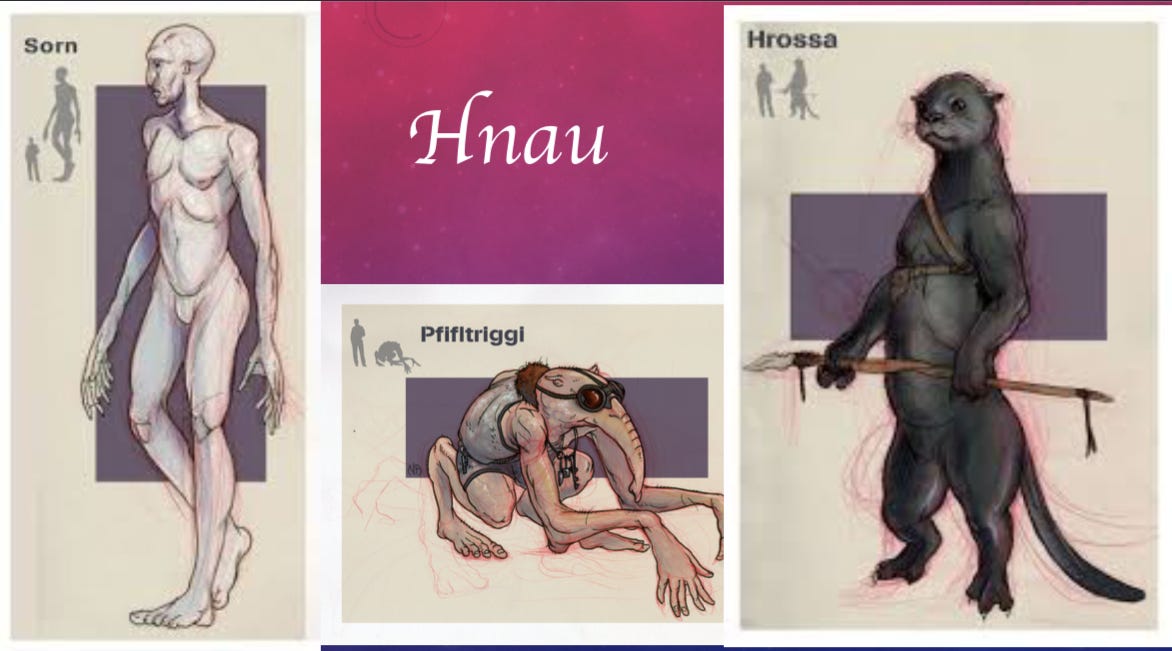
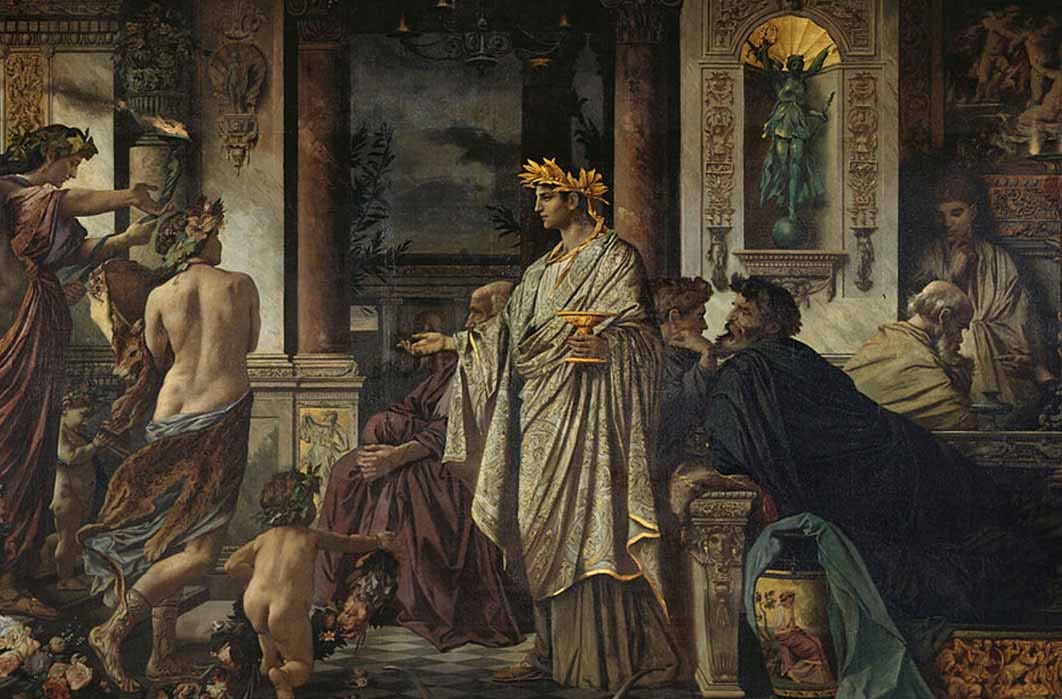
I am so glad to be reading this book. I love it.